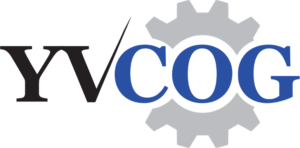For the first time ever, a competitive application process resulted in significant changes to the Valley’s homeless funding ‘landscape.’
“Existing and new service providers will receive funding for new projects that will help us break out of the emergency encampment cycle we’ve been in. A potentially funded project includes a tiny-homes proposal led by Transform Yakima Together,” said YVCOG Executive Director Larry Mattson. Transform Yakima Together is the organization managing the encampment near the old K-Mart this summer. Despite the efforts of Yakima Neighborhood Health Services to provide services to campers, last summer’s encampment at 3rd Street and Walnut Avenue quickly became an unsafe and unsanitary community eyesore.
The competitive process resulted in reduced funding for Yakima Neighborhood Health Services (from $1.4 million to $534,000), and no funding for Triumph Treatment Services. “Twenty-one applications were scored by our 7-member citizen panel. The panel includes Valley residents from a variety of backgrounds including business, mental health, clergy, local government and an at-large citizen. This committee had difficult choices to make. They chose to emphasize longer-term projects,” said YVCOG program manager Crystal Testerman. The citizen panel focused on proactive long term solutions rather than reactive emergency services. Because of this funding shift, there will be some who try to cause fear that we will have hundreds of homeless people on the streets now.
When funding is shifted to a different homeless service provider, the homeless person or family receiving services do not necessarily lose their services. The new providers begin to serve these clients with either the same services, or possibly with new services. The federal and state funds determine how the providers can spend the money and what type of services they can provide.
Utilizing the ZoomGrants online tool, the panel scored 21 different applications, requesting more than $4.1 million, from an available pool of $1.9 million. “The results of this first-ever competitive process change the landscape for homeless services in the Valley in a good way,” according to YVCOG Executive Committee Chairman Jim Restucci, Mayor of Sunnyside. “New service providers with new ideas will receive funds. With these recommendations from our citizen scoring panel we’re turning the corner, taking steps to really get ahead of the homeless problem.”
YVCOG staff is working with newly-funded agencies to make the transition as seamless as possible for previously homeless clients. Despite those efforts, we can expect to see some people become temporarily homeless as old service contracts end and new contracts begin. “We have a broad network of service providers. I know they’ll do their best to ensure that their homeless clients continue to receive the services they need,” said Crystal Testerman.
Although cutting off or reducing funds to current service providers was difficult, we need to find solutions that deliver long term results. It is costing our community millions of dollars each year providing services. We need a different approach.
Homeless Program funds are public dollars. These funds come from your federal taxes and local document recording fees. With your money, we are required to manage these funds to ensure competitiveness and compliance. The competitive process ensures that business is conducted with integrity, fairness, and openness. This provides any qualifying organization with the chance to receive public funding.
Recommended 2017 Consolidated Funding Awards:
- Transform Yakima Together – $236,000 – Capital Improvement Project – Construction of tiny homes to provide housing for unsheltered families and individuals including chronically homeless.
- Yakima Neighborhood Health – $120,000 – Capital Improvement Project – Construction costs associated with a transitional housing unit to serve chronically homeless individuals, homeless veterans, and homeless elderly over 62.
- Entrust – $100,000 – Community Investment Project – Certified Peer Mentoring with case management and providing employment opportunities for unsheltered families and individuals including the chronically homeless.
- YWCA – $100,000 – Operating Costs – Operations for a housing program, case management and emergency services for victims of domestic violence.
- Rod’s House – 54,000 – Operating Costs – Operations for a youth drop-in center to serve unaccompanied youth ages 13-24.
- Catholic Charities – $304,354 – Rental Assistance/Operating Costs – Provide rental assistance/subsidy a.k.a. the Young Adult Housing Program (YAHP) which serve homeless clients 18-24 years of age. Services will include intensive case management.
- Northwest Community Action Center – $353,684 – Rental Assistance – Provide permanent housing for families with children. Also will provide essential needs items and potential housing assistance for low income adults who are unable to work for at least 90 days with a disability referral from DSHS, a.k.a Housing and Essential Needs (HEN) clients.
- Yakima Neighborhood Health – $414,000 – Rental Assistance – Provide essential needs items and potential housing assistance for low income adults who are unable to work for at least 90 days with a disability referral from DSHS, a.k.a Housing and Essential Needs (HEN) clients.
- Lower Valley Crisis Services – $46,665 – Emergency Shelter – Provide emergency shelter including case management for victims of domestic violence with geographic focus in the Lower Valley.
- Transform Yakima Together – $180,000 – Emergency Shelter – Provides a 24-hour “managed” encampment while in the process of acquiring a permanent facility for a low barrier homeless shelter serving unsheltered individuals and couples including the chronically homeless.
YVCOG Contacts:
574-1550
Crystal Testerman, Homeless Program Manager
Larry Mattson, Executive Director


